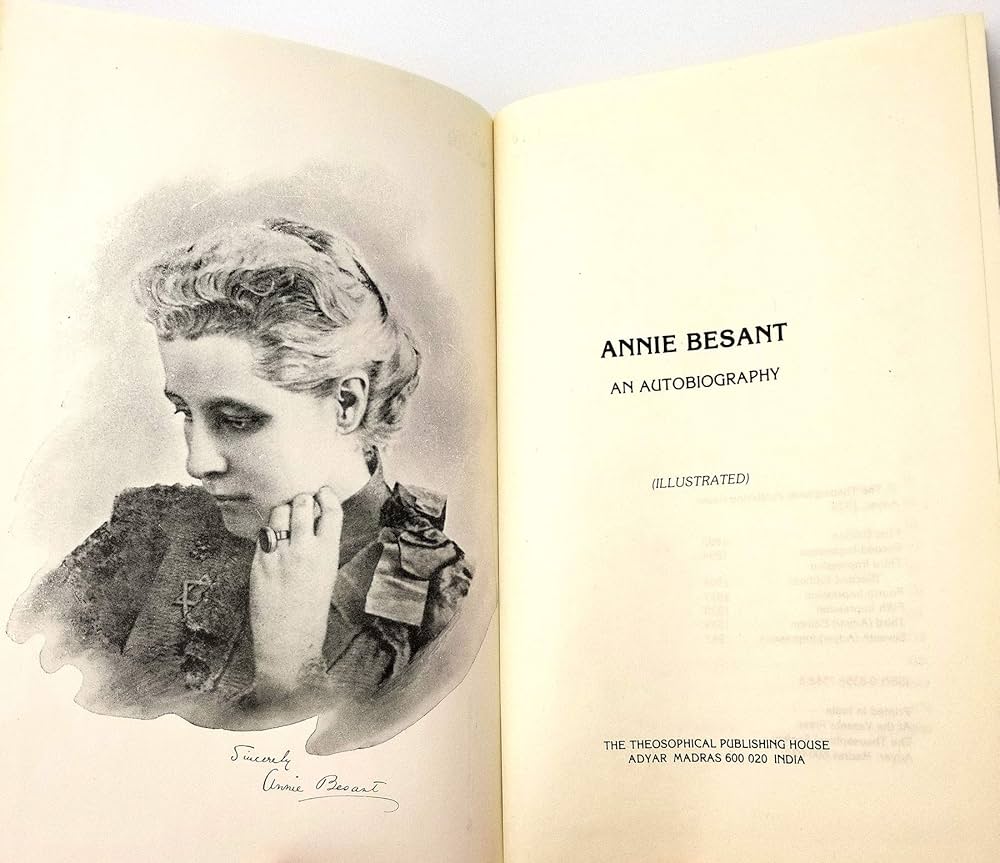In the heart of British-controlled India, where the shadows of colonial rule stretched across every corner of the country, a woman from Britain stepped forward, driven by a passion for justice. Her name was Annie Besant, and though she was born in London, her heart soon beat for India and its people, who had been denied their freedom for far too long.

A Foreign Heart with a Shared Dream
Annie Besant’s journey to India began in 1893, when she arrived as part of the Theosophical Society, a movement that sought to promote unity and spiritual growth. At first, she was an outsider—an Englishwoman in a land under British rule. But as she traveled through the streets of India, she saw the suffering of its people, their longing for independence, and their deep, unfulfilled potential. She saw that, despite the beauty and wisdom of the Indian culture, the nation was under the control of foreign rulers who had no love for its people.
Besant knew what it felt like to fight for the rights of the oppressed. She had long fought for women’s rights and social justice in England. Now, in India, she found a cause that called to her soul—a cause that was bigger than anything she had ever imagined. She felt a deep, almost spiritual connection to India’s fight for self-rule.
The Home Rule Movement: Awakening the Spirit of Resistance
In 1916, with unwavering resolve, Besant launched the Home Rule League, a movement that called for Indian self-governance within the British Empire. But Besant’s message wasn’t just political—it was deeply emotional. She didn’t just tell the people of India that they could govern themselves; she told them that they deserved to govern themselves. She spoke to their hearts, reminding them of their strength and their right to live free from foreign control.
Annie Besant wasn’t just asking Indians to join a movement. She was awakening a spirit of resistance that had been silenced for generations. Her words stirred men and women from all walks of life—from farmers in the fields to students in the classrooms. She inspired them to dream of a future where they controlled their own destiny. She made them believe that their freedom was not only possible, but essential.
Leading by Example: The Courage to Stand Against Oppression
Besant’s leadership wasn’t just in her words; it was in her actions. She was not an armchair revolutionary—she threw herself into the struggle. When the British government arrested her in 1917 for her activism, she showed the Indian people what true courage meant. Her imprisonment only strengthened her resolve and made her even more beloved among the masses.
Her courage and dedication earned her the respect of Indian leaders like Bal Gangadhar Tilak and Lala Lajpat Rai. These men, who had fought for India’s freedom for years, saw in Besant a kindred spirit—a leader who, though from a foreign land, was fully invested in the cause of Indian independence. Besant’s leadership united people who had once been divided, showing them that, no matter where they came from or what language they spoke, they shared one unbreakable bond: the desire to be free.
The Emotional Power of Leadership
Annie Besant’s leadership was rooted in her deep empathy for the Indian people. She didn’t come to India to lecture or dictate; she came to listen and to understand. She understood their pain, their struggles, and their dreams. And with that understanding, she led them with compassion, strength, and hope.
Her leadership wasn’t about power or titles—it was about service. She led because she truly believed in the power of India and its people. And by believing in them, she made them believe in themselves.
The Leadership Legacy of Annie Besant
Annie Besant’s story is not just the story of a British woman who fought for India’s freedom. It is the story of a leader who, despite the distance between her birthplace and India, understood that true leadership transcends borders. It’s about connecting with people, inspiring them, and leading them toward a better future.
Her legacy teaches us that leadership is not about where you come from or the title you hold. It’s about your ability to stand with those who need you, to inspire them to dream big, and to help them believe that they can make their dreams a reality. Like Besant, we too can lead by understanding, by caring, and by lighting the path for others to follow. Leadership is about touching hearts, not just minds. And when hearts are moved, the impossible becomes possible.